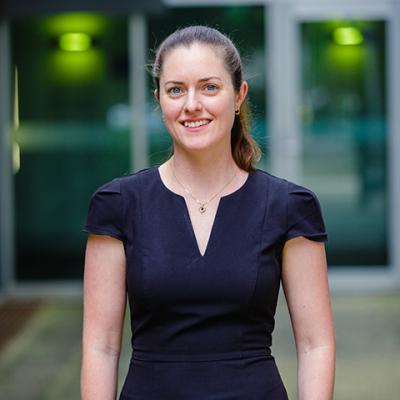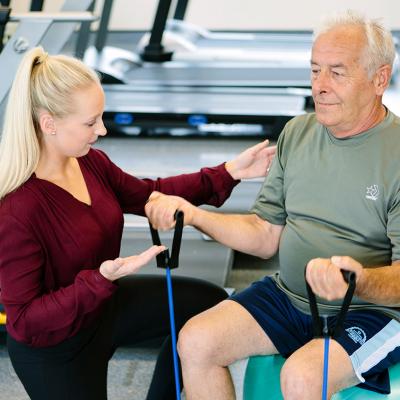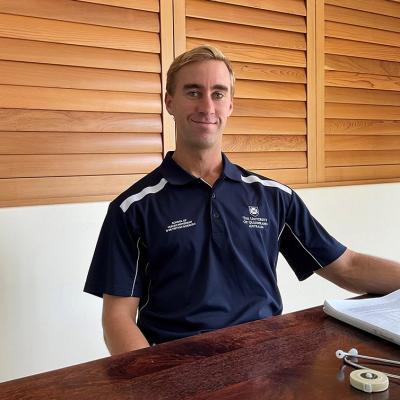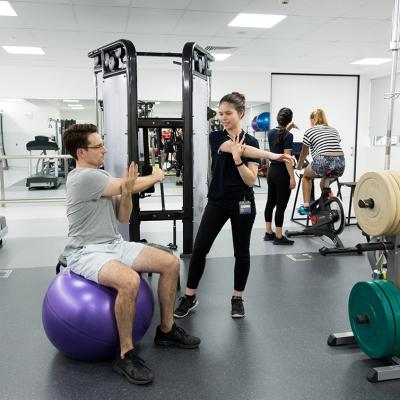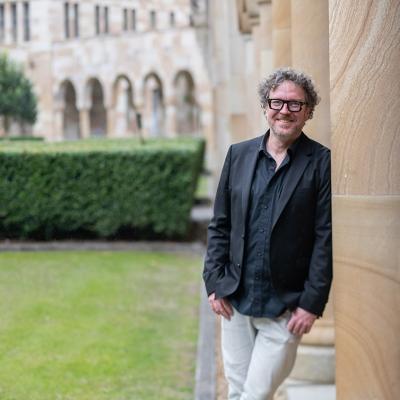Meet Dr Shelley Keating, an Accredited Exercise Physiologist and Senior Lecturer in UQ’s Bachelor of Clinical Exercise Physiology (Honours) program.
A lot of people may not know what clinical exercise physiology is, or what an accredited exercise physiologist (AEP) does. For Shelley, it can be put quiet simply:
“Being an AEP gives you a chance to have a transformative impact on an individual’s life by supporting them to exercise.”
With a focus on ‘bringing the clinic to the classroom’, Shelley helps ensure her students understand the complexities of living with a chronic health condition and are taught to use this understanding as a basis for personalised exercise intervention.
What is an accredited exercise physiologist?
Accredited exercise physiologists (AEPs) are university-qualified allied health professionals who specialise in designing and delivering safe and effective exercise interventions for people with chronic medical conditions, injuries or disabilities.
“When it comes to the prescription of exercise, they are the most qualified professionals in Australia and play a vital role in the healthcare system,” Shelley says.
“AEPs often work in collaboration with a patient’s general practitioner and other healthcare professionals, such as physiotherapists, dietitians, psychologists, or occupational therapists."
"Their key role in this interprofessional care model is to develop an exercise program based on a patient’s medical status, to ensure the program is both safe and effective in achieving the required health goals.”
Shaping tomorrow’s exercise professionals
Shelley is currently a Senior Lecturer for UQ’s undergraduate clinical exercise physiology degree, the Bachelor of Clinical Exercise Physiology (Honours).
“Central to my teaching approach is also the emphasis on personalised, person-centred care, alongside the biopsychosocial approach to patient management (looking at how lifestyle factors can affect the health and wellbeing of clients, and how medical conditions can affect a client's lifestyle and their ability to train),” says Shelley.
Shelley is confident that UQ’s exercise physiology students will be in good stead for their own careers in a job market calling out for their expertise.
“UQ clinical exercise physiology graduates are highly competitive for a wide range of employment opportunities,” she says.
“This is because they benefit from a comprehensive learning approach right from the beginning of their degree, which integrates theoretical knowledge with supported hands-on clinical experiences."
“As such, our students are better prepared to make the most of their final year practicum placements, graduating with the confidence and competence that gives them a distinct advantage when entering the workforce.”
Leading critical research
Shelley’s passion for exercise physiology is driving research aimed at supporting people living with cardiometabolic conditions – a group of common but often preventable conditions such as heart disease, stroke, diabetes, insulin resistance and fatty liver disease.
“I’m driven to change the way that exercise is prioritised, accessed and delivered for people with cardiometabolic conditions, so that all people living with these conditions can be supported to be physically active,” she says.
“Research has already shown that exercise is an effective intervention and should be trumpeted as a primary therapy for these patients; however, my work has identified a lack of awareness, uptake, and sustainability of exercise for the management of some of these conditions.
“My research has identified cost, access, musculoskeletal issues, competing priorities and low energy as key barriers to long-term exercise maintenance. The ongoing focus of my research is to find solutions that will help people maintain their exercise, and thus their health and wellbeing, in the long term.”
The future of exercise physiology
When we ask where she sees the future of exercise physiology heading, Shelley emphasises the vital role accredited exercise professionals play in helping relieve the burden of chronic disease.
“The burden of chronic disease is increasing in parallel with an ageing population and increasing levels of obesity,” she says.
“Through evidence-based practice, including the use of behaviour change processes, AEPs can help people living with chronic and complex conditions, such as obesity and diabetes, to live a longer and healthier life. People are living longer and so, inevitably, a large proportion of these people are living with chronic diseases, illness or injury, and would benefit from the services of an AEP.”
Shelley is excited about the wide range of career options available to those who choose to enter the profession today.
“AEPs can work across so many fields – aged care, paediatrics, disability, mental health, workplace health and rehabilitation services are just some of them," she says.
“Exercise physiology is the second fastest growing profession in Australia at the moment, with Queensland employing the most exercise physiologists in the country.”
According to Shelley, changes in the way that health services are delivered are also opening up some exciting opportunities.
“The use of digital health technologies such as telehealth, smartwatches, and mobile apps, is changing the way we deliver health care," she says.
“Aspiring exercise physiologists should embrace the changing landscape of healthcare, which will likely broaden the impact and reach of our profession.”
Learn more about UQ's Bachelor of Clinical Exercise Physiology (Honours)Meet other UQ teachers


